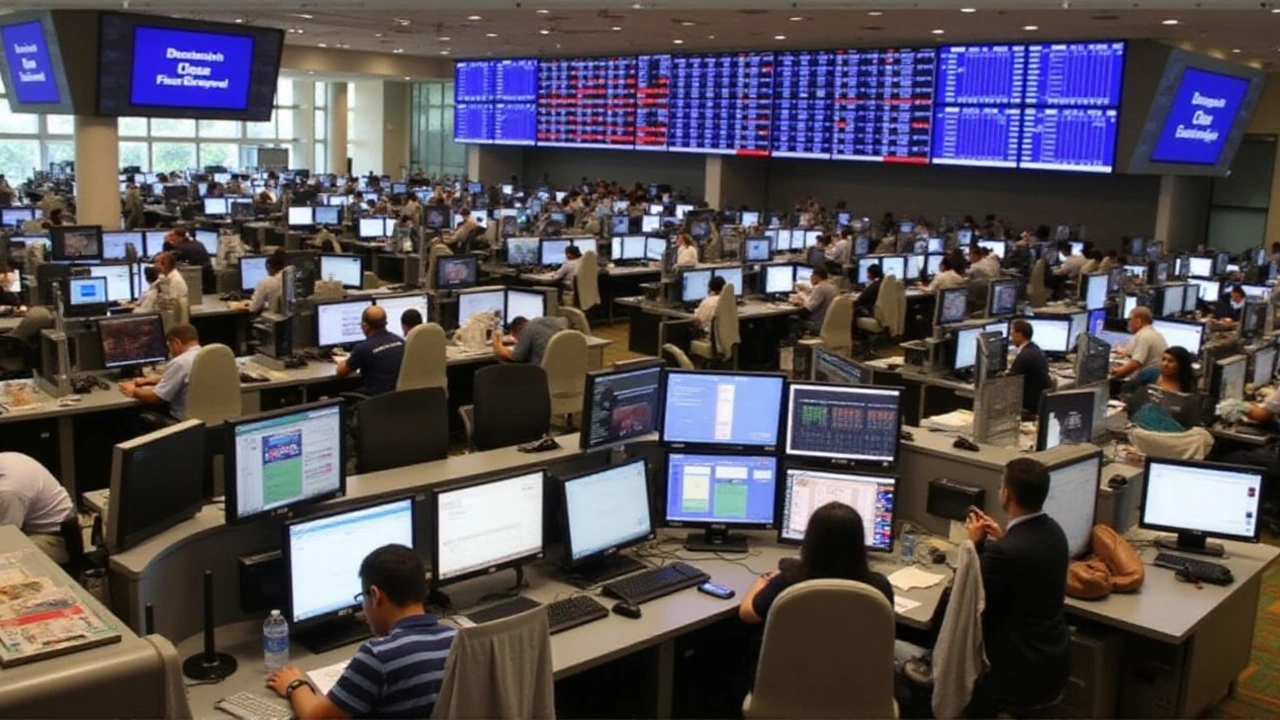Colombo Stock Exchange Extends Trading Hours
The Colombo Stock Exchange (CSE) is making significant changes to its daily trading schedule starting November 1, 2022, with the intention of extending trading hours. This decision comes from a directive issued by the Securities and Exchange Commission of Sri Lanka (SEC), highlighting the necessity for a more robust trading window. By elongating the trading hours, the CSE aims to better accommodate traders and investors, providing them with ample time to execute their transactions.
Under the new schedule, the trading day will begin with a pre-open session from 9:00 a.m. to 9:30 a.m. This initial session is designed to facilitate the placement of orders, allowing market participants to prepare strategically before the regular sessions commence. Following this, the open auction will take place at precisely 9:30 a.m., kicking off the day's active trading. The market will then transition into its regular trading hours starting at 10:00 a.m., concluding the day's operations at 1:00 p.m.

Market Activity and Liquidity
This extension of trading hours is expected to have a ripple effect on the overall market activity and liquidity. By offering an additional window of time for trading, the CSE is likely aiming to attract higher participation from both local and international investors. Increased trading hours mean that more transactions can be facilitated, fostering a more dynamic market environment. In the intricate world of stock markets, liquidity is a crucial component. Enhanced liquidity often translates to more efficient price discovery and a more vibrant trading atmosphere.
Investor Feedback and Market Conditions
The SEC's decision to extend the CSE's trading hours did not come in isolation. It was a response to current market conditions and substantial feedback from the investor community. Investors have often advocated for longer trading hours to better align with global markets, increasing the CSE’s competitiveness on a worldwide scale. Feedback from traders and market participants played a pivotal role in this adjustment, showcasing the importance of shaping market practices based on direct input from stakeholders.
For a market like the CSE, which is growing and evolving, staying competitive with other global stock exchanges is essential. As time zones and trading hours can often pose challenges for international investors, aligning these elements more closely with global norms could make the CSE a more attractive option. This move is part of broader efforts by the CSE and SEC to modernize the trading environment, ensuring that it meets the high standards set by leading financial markets around the globe.
Impact on Traders and Market Dynamics
From a trader's perspective, the extension provides more flexibility and opportunity. Longer trading hours might lead to more strategic entry and exit points for investments, allowing traders to capitalize on various market movements throughout the day. For institutional investors, who manage large volumes of transactions, this could mean a more efficient process and potentially better outcomes for portfolios.
Furthermore, the change in trading hours might encourage new participants to enter the market. With more time to trade, the barrier for entry could be perceived as lower, attracting a new wave of individual investors who are looking for shorter investment windows. This diversification of market participants could add another layer to the market’s dynamics, creating a more inclusive environment for various types of traders.

Enhanced Efficiency and Global Competitiveness
A parallel benefit of extended trading hours is the potential improvement in overall market efficiency. By providing more time for trading activities, analysts estimate that the market's ability to respond to news and global financial events will be improved. Real-time reactions to economic data, corporate announcements, and geopolitical developments can now be integrated more seamlessly, contributing to more accurate and timely price adjustments.
Moreover, the competitive edge gained by aligning more closely with the trading hours of leading global exchanges cannot be understated. In a world where capital is increasingly mobile, having a trading schedule that facilitates international participation is a strategic advantage. This alignment can particularly benefit local companies listed on the CSE, as they may see increased interest from foreign investors, potentially raising their capital and expanding their business operations.
Future Prospects and Market Evolution
Looking ahead, the future prospects for the CSE appear promising. The extended trading hours mark a pivotal step in the exchange’s evolution, pointing towards a more inclusive and competitive market environment. It underscores the commitment of the SEC and CSE to continuous improvement, responding to market needs and staying ahead of global trends. As the market adapts to these changes, it will be intriguing to observe how trading patterns evolve and what new opportunities emerge for both investors and listed companies.
Investors and analysts alike will be closely monitoring the impact of these extended hours on the CSE's performance. Initial reactions suggest optimism, but the true measure of success will be seen in the long-term effects on market activity and liquidity. By enhancing its trading window, the CSE is undoubtedly positioning itself to better serve the interests of its participants, potentially heralding a new era of growth and efficiency in Sri Lanka’s financial markets.







Taylor Smith
August 21, 2024 AT 05:15This is actually a solid move. More time to trade means more room to breathe when markets get wild. No more scrambling at the last minute just to get a trade in.
Feels like the CSE is finally catching up to how the world actually works.
Tammy Cooper
August 22, 2024 AT 09:06YOOOOO this is a GAME CHANGER 😭😭😭 i was literally crying last night thinking i'd miss the 1pm close again. now i can finally finish my coffee AND trade. thank you CSE you beautiful chaotic mess you.
Alyssa Hammond
August 23, 2024 AT 05:55Let’s be real - this isn’t about ‘liquidity’ or ‘global competitiveness’ it’s about making retail traders do more work so hedge funds can front-run them better. You think extending hours helps the little guy? Nah. It just gives the big boys more time to manipulate the spreads, squeeze shorts, and bury the average investor under algorithmic noise. This isn’t progress. It’s exploitation dressed up as reform. And don’t even get me started on how this will inflate volatility during low-volume hours - it’s a recipe for panic dumps disguised as ‘price discovery’.
Peggy Cai
August 24, 2024 AT 15:18I mean if you really care about markets you'd be trading 24/7 not just 4 hours a day. Why stop at 1pm? Why not go full NYSE? Why not let the market decide when it wants to trade? We're not in 1980 anymore. This is just the first step toward true financial liberation. If you're not ready to be awake at 5am or 11pm to catch global flows you're not a real investor you're just a spectator with a brokerage account.
Also why does everyone act like liquidity is magic? It's just people willing to trade. More hours = more people = more truth in prices. It's basic.
Kate Calara
August 25, 2024 AT 11:31They say it’s for global alignment but let’s be honest - someone’s pushing this because the SEC is getting paid by foreign firms to open up the market. Remember how the bond market suddenly got ‘more transparent’ right before the dollar surge? This is the same playbook. Extended hours = more data = more surveillance = more control. They’re not helping traders. They’re harvesting behavior. And don’t tell me you didn’t notice how the volume spiked right after the announcement - that’s not organic, that’s orchestrated.
Chris Jagusch
August 26, 2024 AT 00:23You guys in US and CA think you know everything but we in Nigeria have been trading 24/7 since 2015 with our phones and WhatsApp groups. CSE is just waking up. You think 4 hours is enough? In Lagos we trade during lunch, after prayers, before bed. You think your 1pm close is a big deal? We trade while our generators are running. This move is cute. But you still don’t get it. Real traders don’t wait for hours - they make hours.
Phillip Lee
August 26, 2024 AT 15:42The real question isn’t how long the market is open. It’s who benefits when it’s open. More hours don’t create value. They just redistribute risk. The system doesn’t care if you have time to trade. It cares if you have information, capital, and access to tools that regular people can’t afford. This change looks progressive but it’s just another way to make the playing field look fair while the deck stays stacked. The market doesn’t need more time. It needs more equity.